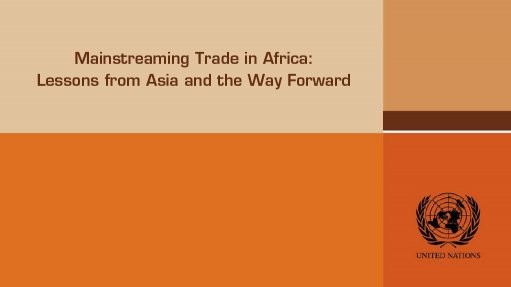
Africa is a heterogeneous, vast and vibrant continent. It is home to 54 countries, has about 15% of global population, is endowed with enormous natural resources, and has experienced relatively strong economic growth over the past decade. Yet, most countries on the continent continue to grapple with the challenge of how to achieve sustained poverty reduction and build inclusive societies (UNECA, AU, AfDB and UNDP 2014).
Trade has the potential to contribute to addressing this challenge. It has played this role effectively in developed countries and also in several countries in Asia and Latin America. It could also play this role in Africa if appropriate measures are taken to unlock and harness its potential for growth and development. Despite the progress that has been made by African governments in economic policy formulation and management over the past decade, trade priorities have not been fully and effectively integrated into national development strategies of many countries on the continent and this has had serious consequences for their ability to effectively integrate into the global trading system and increase their share of the benefits of global trade.
Mainstreaming trade is important for Africa because the benefits of trade are not automatic. They accrue to countries that have taken proactive steps to exploit opportunities created in the global trading system. In this context, there is the need for African countries to elaborate their trade priorities and fully integrate them into overall development strategies to ensure better development outcomes from trade than was the case in the past.
Report by Unctad